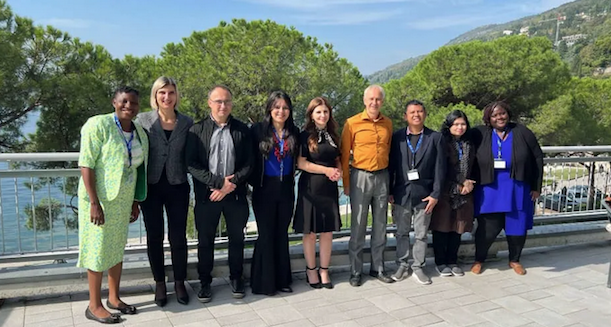
Members of TWAS Young Affiliates Network (TYAN) Executive Committee met in Trieste, Italy, from 5 to 7 October, to decide on the future activities of their vibrant organization, composed of almost 400 scientists from 82 countries. The current Executive Committee started its five-year term in 2021, but assembled in Italy for the first time ever, due to the restrictions posed by the COVID-19 pandemic.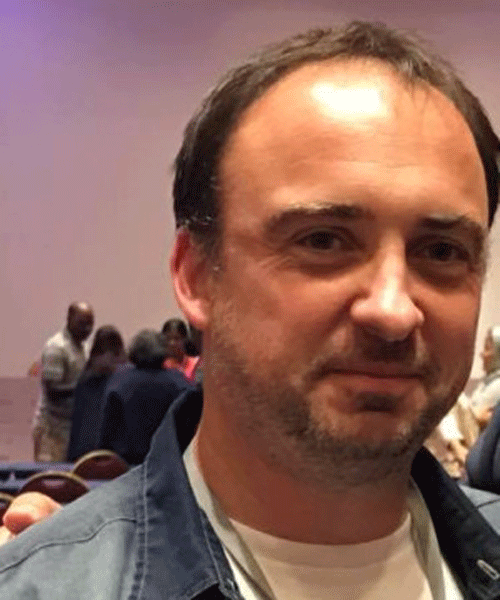
During the three-day meeting, seven of the eight Committee members1 met with TWAS Programme Coordinator Max Paoli to examine the outcomes of past activities and lay the foundation for the next five years. They also met with TWAS Executive Director Romain Murenzi to review priorities and address funding challenges.
"We had a fruitful meeting because we revised the previous strategic plan, and established new programmes to foster higher education in science- and technology-lagging countries and in the least developed countries," said TYAN Chair Franco Cabrerizo, Professor at the National University of San Martín, in Argentina. "An important priority we have come up with, in fact, entails increasing the affiliation of young members from under-represented countries."
TWAS elected its first group of Young Affiliates in 2007. Each year, each of the five TWAS Regional Partners selects five brilliant scientists under 40 to become Young Affiliates. After five years, they become Alumni.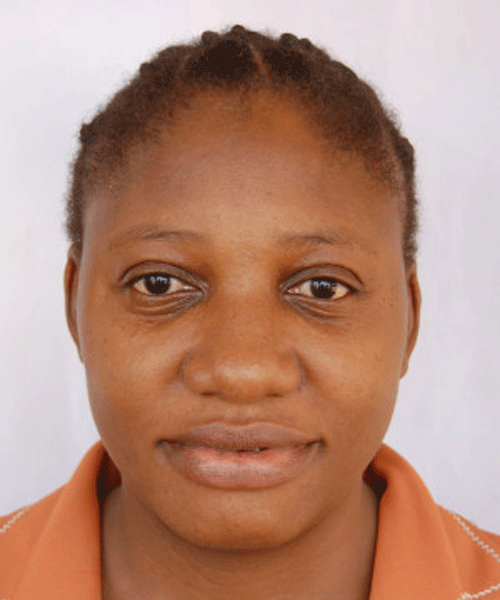
TYAN was launched in 2016 at TWAS Twenty-seventh General Meeting in Kigali, Rwanda, with the support of Lenovo, the largest PC company in the world. TYAN was established to bring fresh energy to the Academy, reinforce ties among the Academy's Young Affiliates, and further promote international collaboration.
During the Trieste meeting, the member of TYAN Executive Committee acknowledged the outcomes of two flagship programmes—TYAN Collaborative Grant Award (TCGA) and TYAN International Thematic wOrkshop (TITO)—that were slowed down by the pandemic.
TYAN Collaborative Grant Award was devised in 2017 to facilitate the building of new, or strengthen existing collaborations so as to enhance TYAN's research capacity. As Cabrerizo explained, "these grants allow scientists to spend short but profitable time at another institute, and concentrate only on the skills they want to learn." The programme was frozen because of COVID-19, but now the applications received are under revision and the in-presence collaborations should start soon.
The programme called TYAN International Thematic Workshop was launched in 2018 and remained active during the worst phases of the pandemic turning virtual, with online events that gathered dozens of scientists from everywhere. With the easing of the restrictions due to the pandemic, it was possible to schedule the next TITO in presence, in São Paulo, Brazil, starting from 1 November.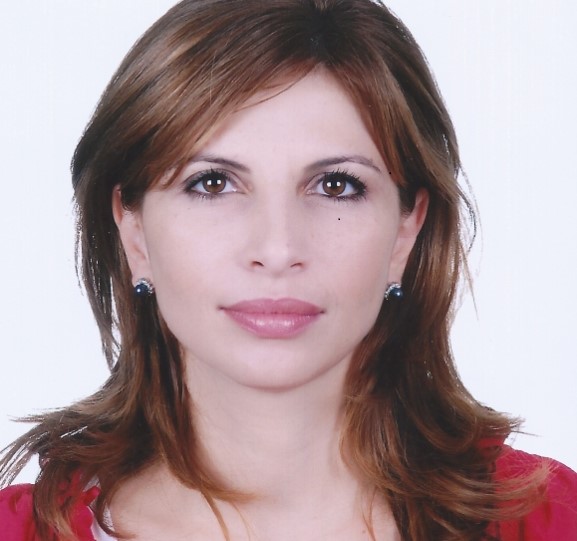
Driven by the idea of a world connected by scientific cooperation, with high scientific standards, and in alignment with the United Nations Sustainable Development Goals, TYAN is moving forward with new ambitious goals, which include:
- Strengthening the interactions among TYAN members, policymakers and development practitioners
- Promoting gender equality, by identifying and empowering more female young scientists
- Creating a TYAN expertise database available to international bodies such as TWAS, the Organization for Women in Science for the Developing World, the InterAcademy Partnership, the Global Young Academy, UNESCO and international development agencies, so that postdoctoral research fellows and/or PhD scholars are funded by these organizations can be mentored by TYAN members.
"We also plan to increase our visibility, through position papers, policy statements, reports and virtual seminars on scientific issues," said Cabrerizo, adding that "collaborations with world-renowned international institutions, such as those that are part of the Sistema Trieste are of pivotal importance."
"Two side meetings, one held with Atish Dabholkar, Director of The Abdus Salam International Centre for Theoretical Physics, and with Lawrence Banks, Director of the International Centre for Genetic Engineering and Biotechnology, both based in Trieste, have substantially contributed to laying out our future plans," added Roula Abdel-Massih, TYAN Co-Chair and Professor of Biology and Community Educator at Central Michigan University, USA. "Together, as TYAN Executive Committee, we left the meeting with a clear action plan for the years to come, formulated around short- and long-term activities."
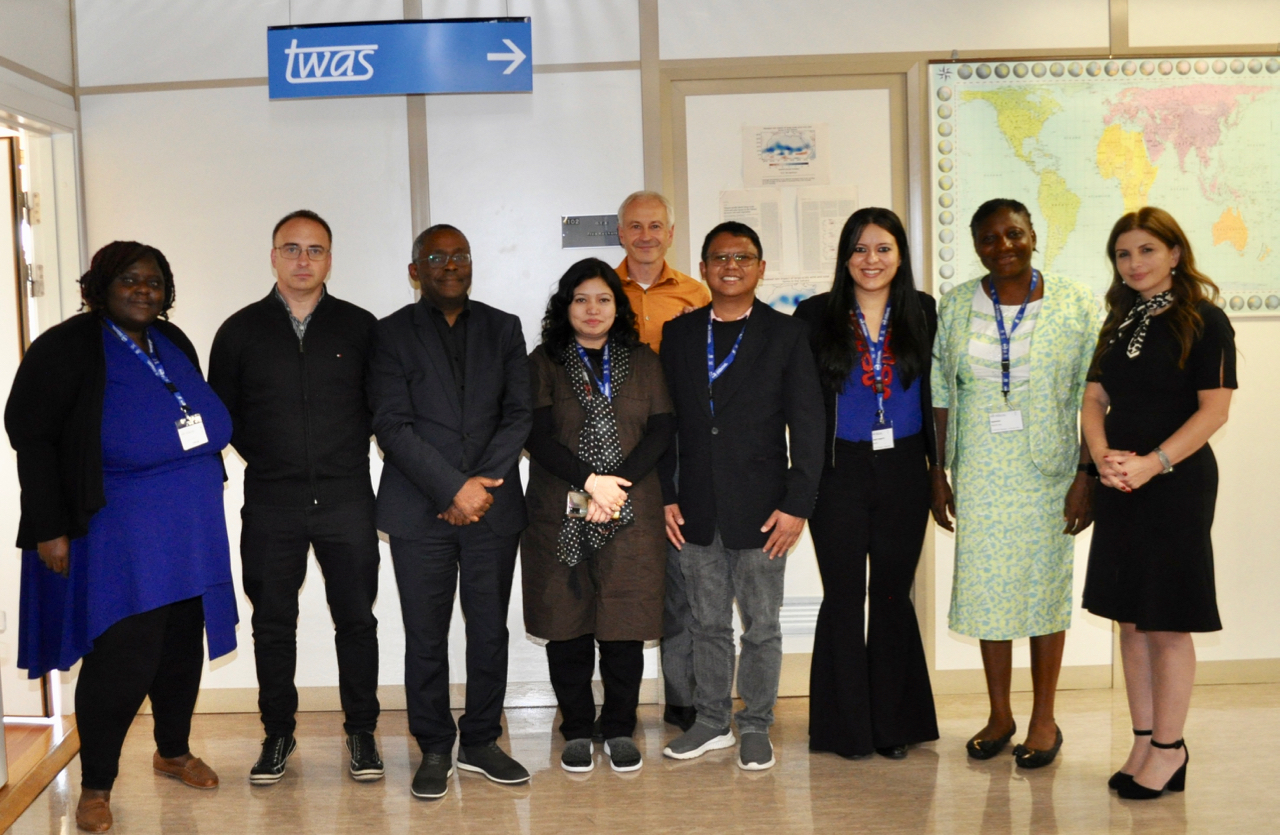 Bolanle Ojokoh, TYAN Co-Chair, and Professor and Head of the Information Systems Department, at the Federal University of Technology, in Nigeria, added: "TYAN embodies great minds, and gives the opportunity to establish connections and initiatives among these young, great scientists. These initiatives will spur problem-solving actions to many of the challenges that the global South, in particular, is facing."
Bolanle Ojokoh, TYAN Co-Chair, and Professor and Head of the Information Systems Department, at the Federal University of Technology, in Nigeria, added: "TYAN embodies great minds, and gives the opportunity to establish connections and initiatives among these young, great scientists. These initiatives will spur problem-solving actions to many of the challenges that the global South, in particular, is facing."
And she concluded: "The meeting truly created an avenue to engage with other Executive Committee members, to assess the status of current network activities, and to forge a path all together in the next couple of months".
Cristina Serra
1. Members of the Executive Committee who attended the meeting:
Franco Cabrerizo, TYAN Chair, of TWAS Latin America and the Caribbean Regional Partner (TWAS-LACREP);
Bolanle Ojokoh, TYAN Co-Chair, of TWAS Sub-Saharan Africa Regional Partner (TWAS-SAREP);
Roula Abdel-Massih, TYAN Co-Chair, of TWAS Arab Regional Partner (TWAS-AREP);
Thomas dela Cruz, of TWAS East and South-East Asia and the Pacific Regional Partner (TWAS-SAPREP);
Tasrina Rabia Choudhury, of TWAS Central and South Asia Regional Partner (TWAS-CASAREP);
Jaqueline Godoy Mesquita, of TWAS Latin America and the Caribbean Regional Partner (TWAS-LACREP);
Rosemary Tonjock, of TWAS Sub-Saharan Africa Regional Partner (TWAS-SAREP).

